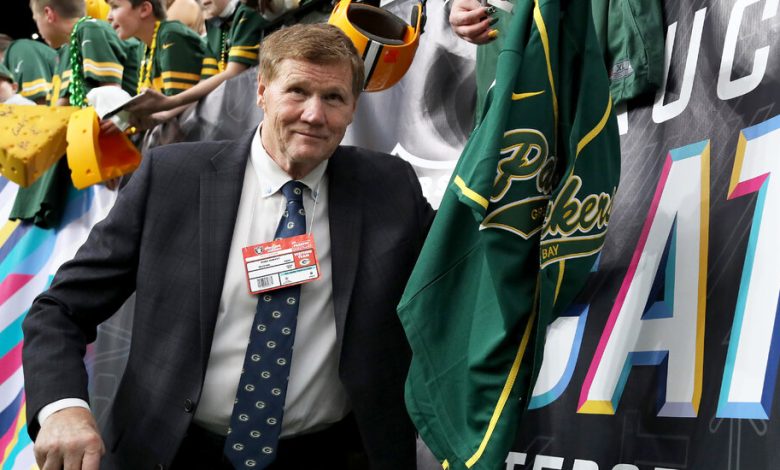Running the Packers Is Complicated. A Sense of Humor Helps.

On a sunny summer day two years ago, Mark Murphy hosted one of the most unusual events in corporate America: the Green Bay Packers’ annual meeting. Thousands of the team’s shareholders — almost all of them fans who had paid hundreds of dollars for nearly worthless shares — filled Lambeau Field and listened to Murphy, the team’s president and chief executive officer, provide updates on the state of the franchise.
Murphy is the antithesis of corporate slick. He speaks bluntly, eschews jargon and disarms critics with a dry sense of humor. One of the many topics he covered that day was the coming season’s schedule. He said the Packers would play the most games in prime time of any team, a sign of their success and popularity. Then he addressed a frequent complaint from fans who said night games at an open-air stadium in Wisconsin were too cold.
“I often hear from fans that, gosh, it would be great if we had more noon home games,” he said. “Well, here’s the reality. If we have a lot of noon home games,” we’re a terrible team. Murphy substituted an expletive for “terrible.”
The fans erupted in laughter. Murphy made his point, but with a smile.
On Monday, Murphy will preside over his 17th and final shareholder meeting. Next year, he will hit the Packers’ mandatory chief executive retirement age of 70 and must step down. Ed Policy, the team’s chief operating officer and general counsel, was chosen last month as his successor and will take over next July.
“I feel very fortunate to be in this position,” Murphy said. “I’ve been in it for a long time now.”
Policy, who has worked alongside Murphy for a dozen years, is best known for creating Titletown, a 45-acre development across the street from the stadium that includes a hotel, offices, restaurants and apartments and provides the team with an extra source of revenue. But the chief executive of the Packers is a different, one-of-a-kind job.
As the leader of the only publicly owned, nonprofit professional sports team, he represents the Packers at N.F.L. meetings, where his vote counts the same as owners who paid 10 figures for their clubs. Unlike them, he flies commercial and doesn’t report to family members or limited partners, but to a board of directors and 539,000 shareholders whose stock pays no dividends and can’t be traded.
